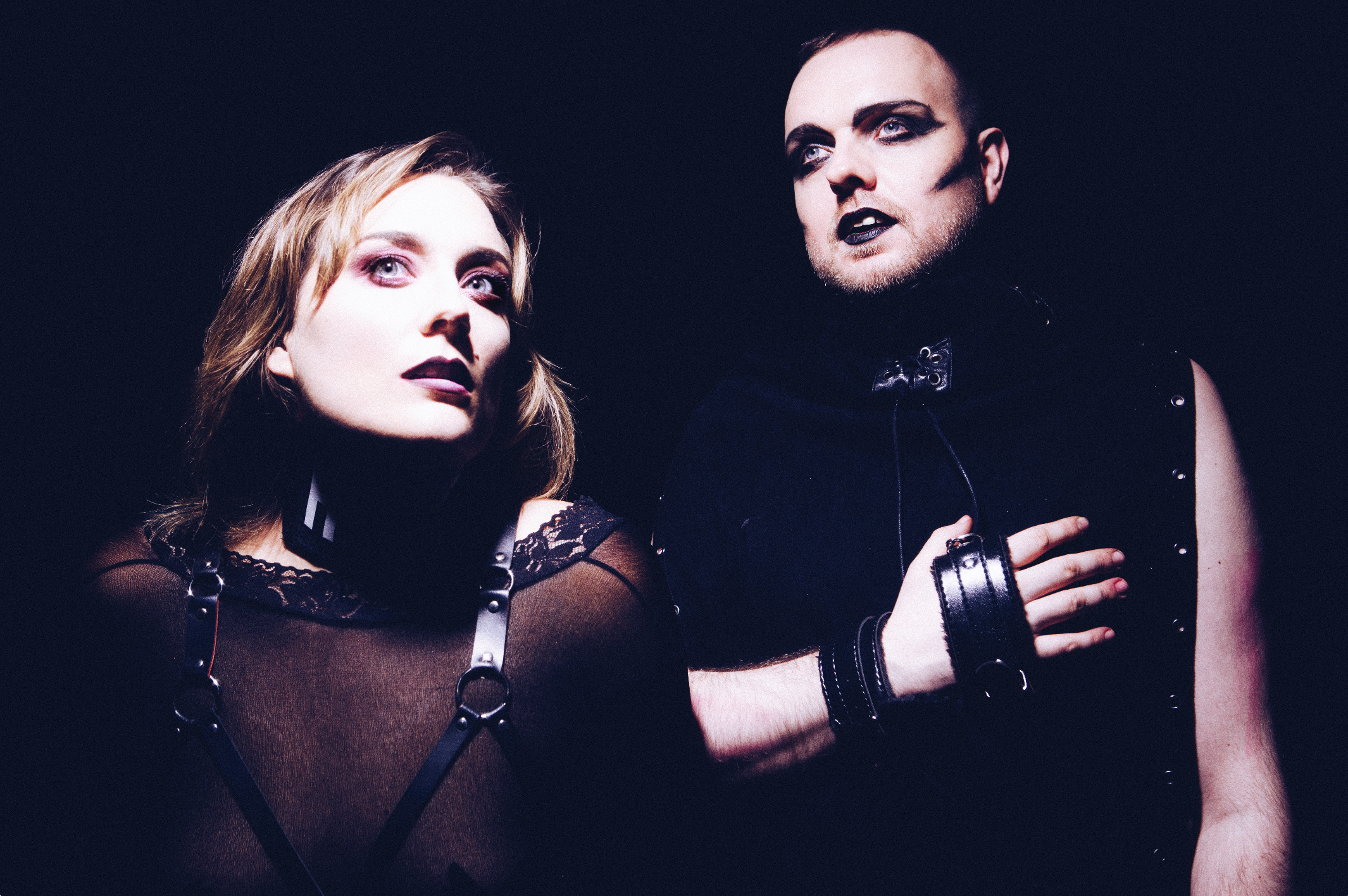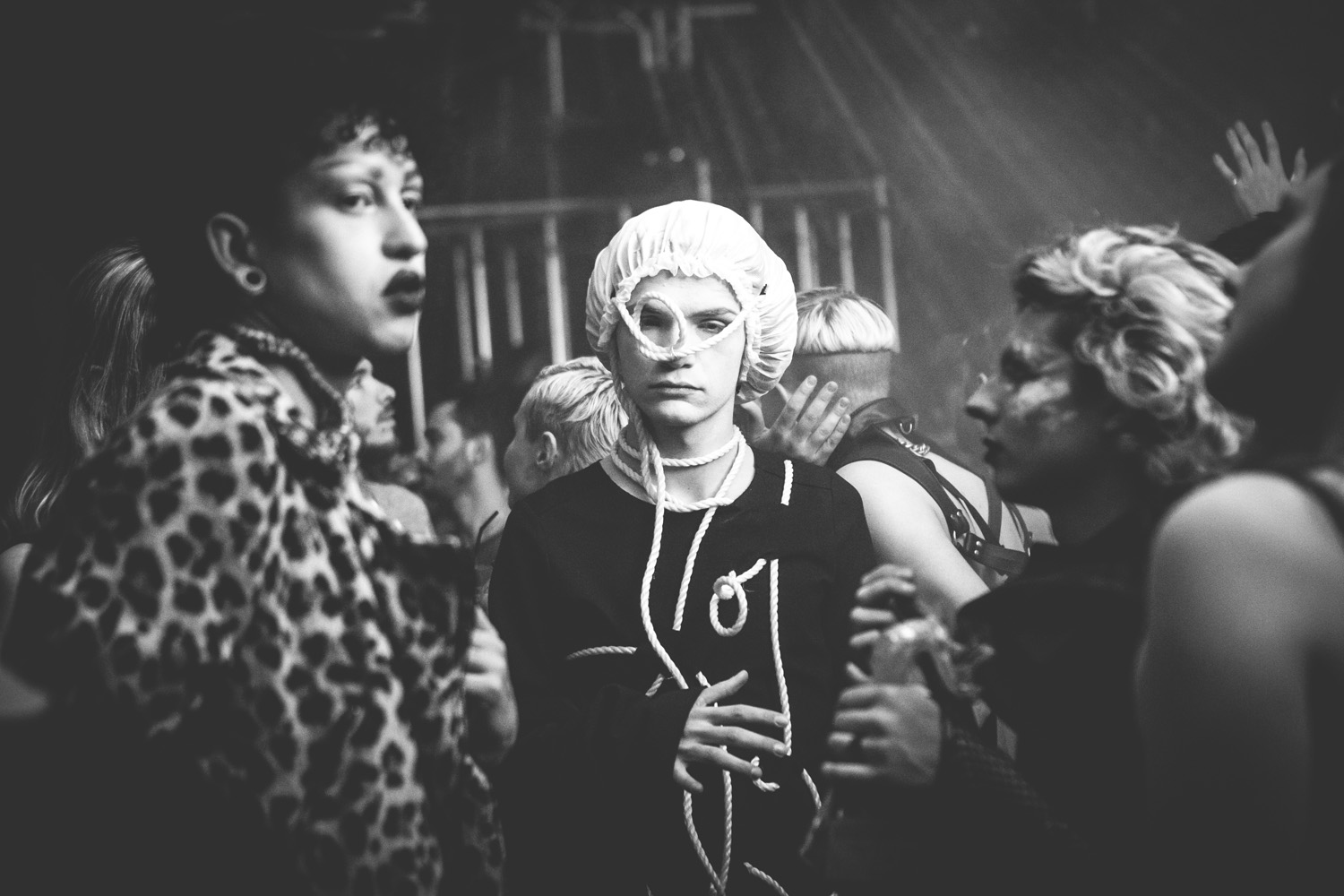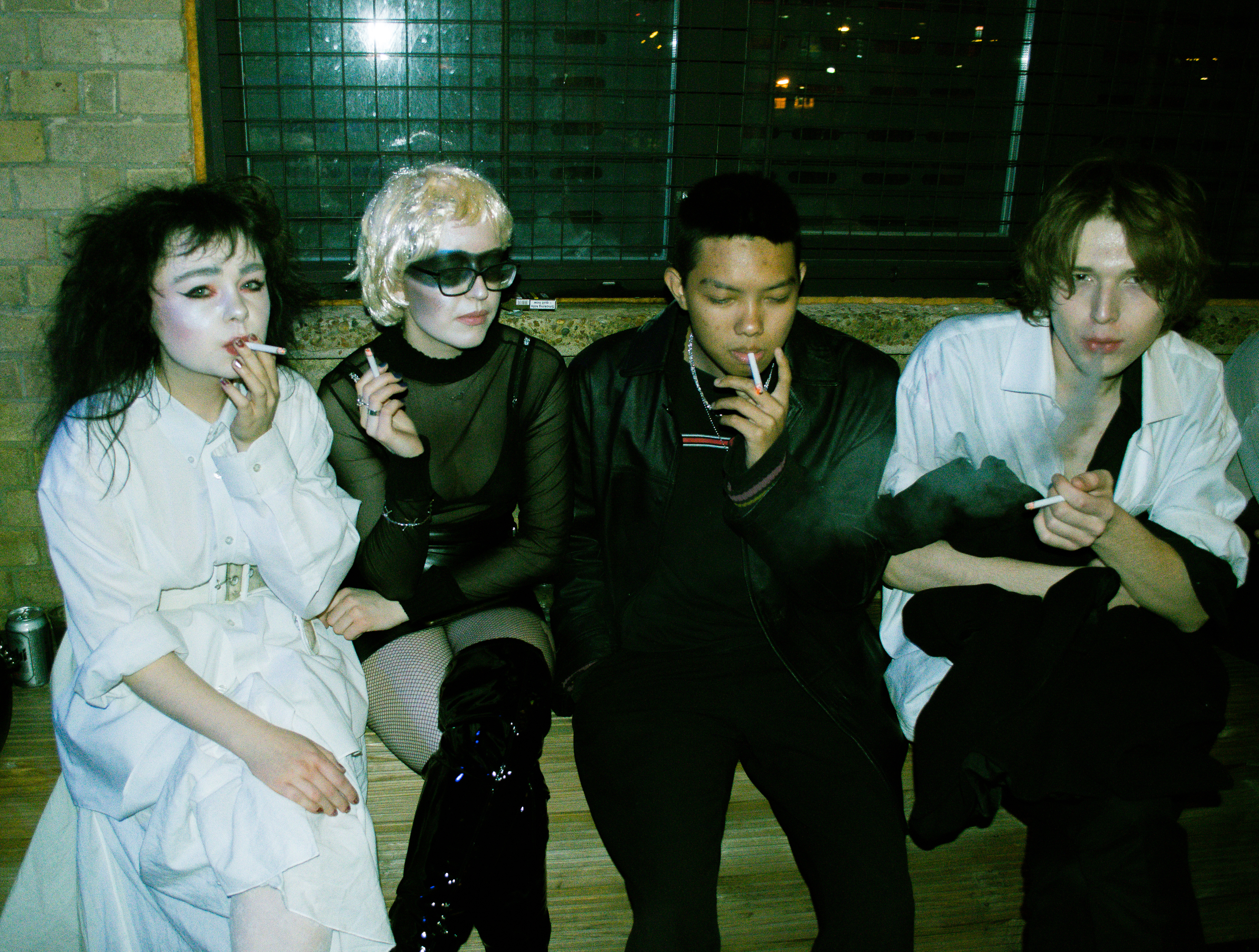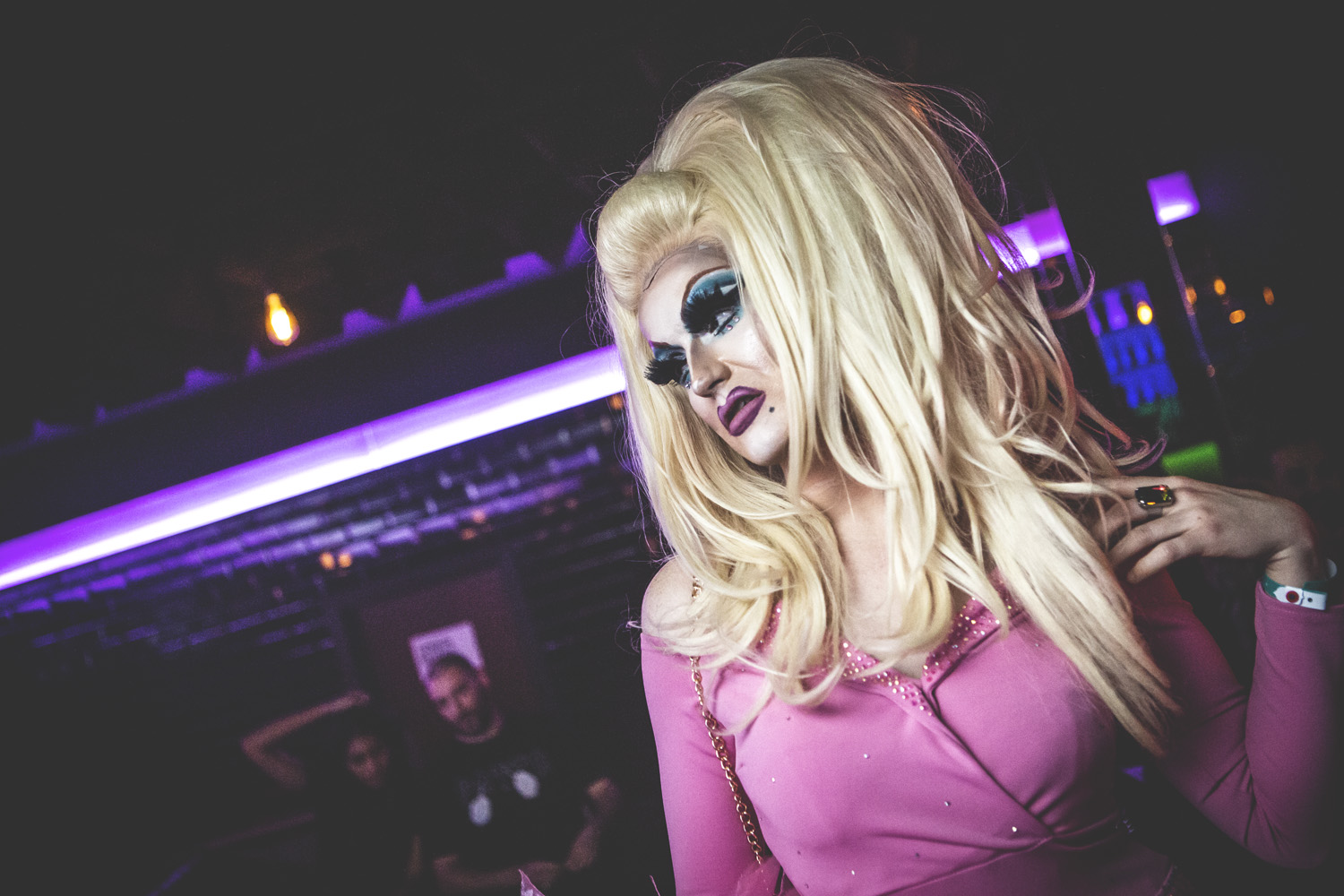Credit: Gemma Bell
That moment when everyone in the audience is feeling the music, DJs start to relax, and people are losing their inhibitions a bit - that’s exactly what HE.SHE.THEY. founders Sophia Kearney and Steven Braines live for.
‘The first couple of hours of one of our events always feels like it's your birthday party when you're a kid, just thinking like, oh my god, is anyone gonna come?’, comments Steven Braines, laughs throughout the interview. Fortunately, many people do come. Fresh out of their season closing event in Amnesia Ibiza, the duo are gearing up for ADE and the club season. For them, seeing diverse talent behind the decks and having dancers from all sorts of different intersections of society means the world. Their events are very popular and well-visited, but that doesn’t mean they take it for granted.
Looking for ADE inspiration? Head to our official ADE ticket hub now
The demand underlines the importance of a space where representation is seen and felt. ‘I think it’s crucial to have those spaces both physically and in the form of events’, explains Sophia Kearney. ‘Even seeing people with all sorts of different body shapes helps. If the audience feels represented, they feel more at ease.’ And while they have been shaping inclusive dancefloors by doing what they do best for years, the duo wants to tell the industry behind it how it’s done, too.

Who is HE.SHE.THEY.?
But why is it essential to open up the conversation, especially during ADE? Sophia Kearney: 'I feel like it's good for ADE visitors to see the team behind HE.SHE.THEY., as it's a very intersectional group of people behind the scenes that will be sitting there. The more diverse the team involved in creating events is, you're naturally going to incite more diversity into the projects you're doing, because you have all these incredibly different viewpoints around the table. Different people help you ensure that you know everything's been thought of as much as possible and that everyone feels represented and included, which is one of the biggest battles. You know, music hasn't been super diverse behind the scenes either.'
Sophia Kearney isn’t exaggerating with that statement. The latest biennial UK Music report into music industry diversity shows that ethnic diversity is down at all levels, and data from the research ‘The Only One In The Room’ presented at ADE 2020 shows that gender imbalance in the industry is very real. And that’s only concerning people behind the scenes because the artist imbalance is even greater, the report ‘Inclusion In The Recording Studio’ by USC Annenberg Inclusion Initiative shows with a ratio of 35 men to 1 woman producing popular songs from 2012 to 2021. Even though we do see more female-identifying people working in junior positions in the industry than a few years ago, we lack them in decision-making positions, as the UK Music report shows - leaving out non-binary people whatsoever.
Without representation, it can be challenging to feel like there’s a fair chance for everyone. Speaking of his co-founder, Steven Braines adds: ‘Sophia is one of the very few non-DJs to have her own international club night and industry brand. Our main agent is a woman as well, so by showing non-male people in those positions, we hope to make people feel that they can do it, too. It may feel difficult to break these ceilings, especially for a queer person or a person of color, and our deputy Ashraf Ejjbair is a queer person of colour. But it is possible - and that’s what we want to show.’

Seeing no change
So, how did the duo turn their frustration into something positive? 'We've both been speaking at different conferences for years, including ADE, IMS Ibiza, Miami Winter Music Conference, and Brighton Music Conference, for instance’, says Sophia Kearney. 'The question was always how things needed to be more diverse. After multiple years of being on all these panels, Steven and I started discussing the panels afterward because we'd often go and watch each other's panels. We were just a bit sick of being rolled out onto these panels to discuss all the problems but seeing no change. It didn't feel like those in a position of power were actually doing anything to change it themselves, and we realized people are terrified to do something that isn't authentic.'
She continues: 'Steven and I felt that we have the authenticity and the experiences of being marginalized in different ways, so we started working together. Besides that, we also have music industry experience from managing global music artists like Maya Jane Coles for several years. So now we had the people in power listening to us, what we could deliver to them was something authentic from different communities would feel valued by and seen and represented by. Ultimately, the frustration turned into the thought: you know what, let’s just do it ourselves.'

Social activism
Steven Braines adds: 'Instead of us being frustrated that nobody else was doing it, we figured that perhaps that was because we were the best people to do it. We wanted to create a club night that we would go to, and thankfully, many other people seemed to want to go, too. We genuinely are doing this because we're passionate about diversity & inclusion and not in a cynical way. It feels like it's in vogue, so there's money to be made, but we have very often not made money from projects or shows because we've put so much into production and lineups. This isn’t ideal as it’s been extremely tough on our personal situations and mental health, but we are here for the bigger picture and longevity. Social activism is a big part of how we run HE.SHE.THEY. We use our platform not just to sell tickets but to highlight some of our beliefs. Not many clubs or record labels will post about topics like abortion rights or trans rights, but why would we not? It's part of what our fans and people involved with the brand like our dancers and DJ’s go through. If we lose someone from our social media because we talked about these rights or black lives matter, for example, it’s zero loss. It's about shaping a community and why we welcome everyone with open minds and open hearts.' Besides the panel ‘HE.SHE.THEY. - How To Create Positivity Out Of Frustration’ where the two dive into solutions for the ‘diversity challenge’ and how they shape the industry even more, the duo also returns to its ‘spiritual’ home base in Amsterdam, Shelter, for its five-year anniversary party.

The lineup includes local act Black Cadmium, Berlin techno icon Ellen Allien, and many others. Working with local people is another important element for HE.SHE.THEY. to open up dancefloors and possibilities, explains Steven Braines: ‘By working with local talent, we try to include the community within our community. If we put someone on a bill with other DJs who are either international or a bit more well-known, that could help move the dial on their career.. We love to see that domino effect, and we’re very grateful that’s happened by either releasing artists or inviting them to play. It’s about creating our own ecosystem and just giving someone a break.’




